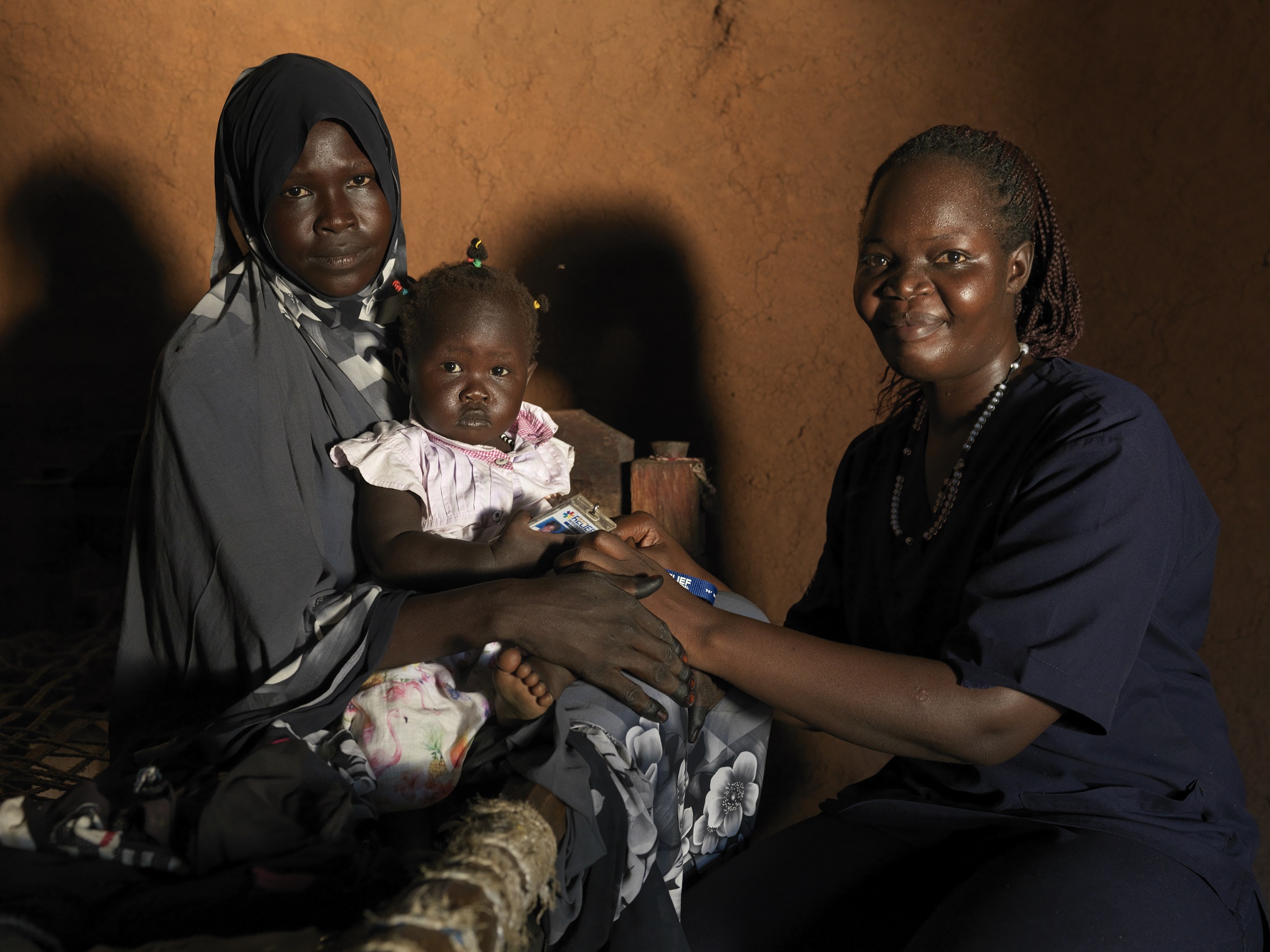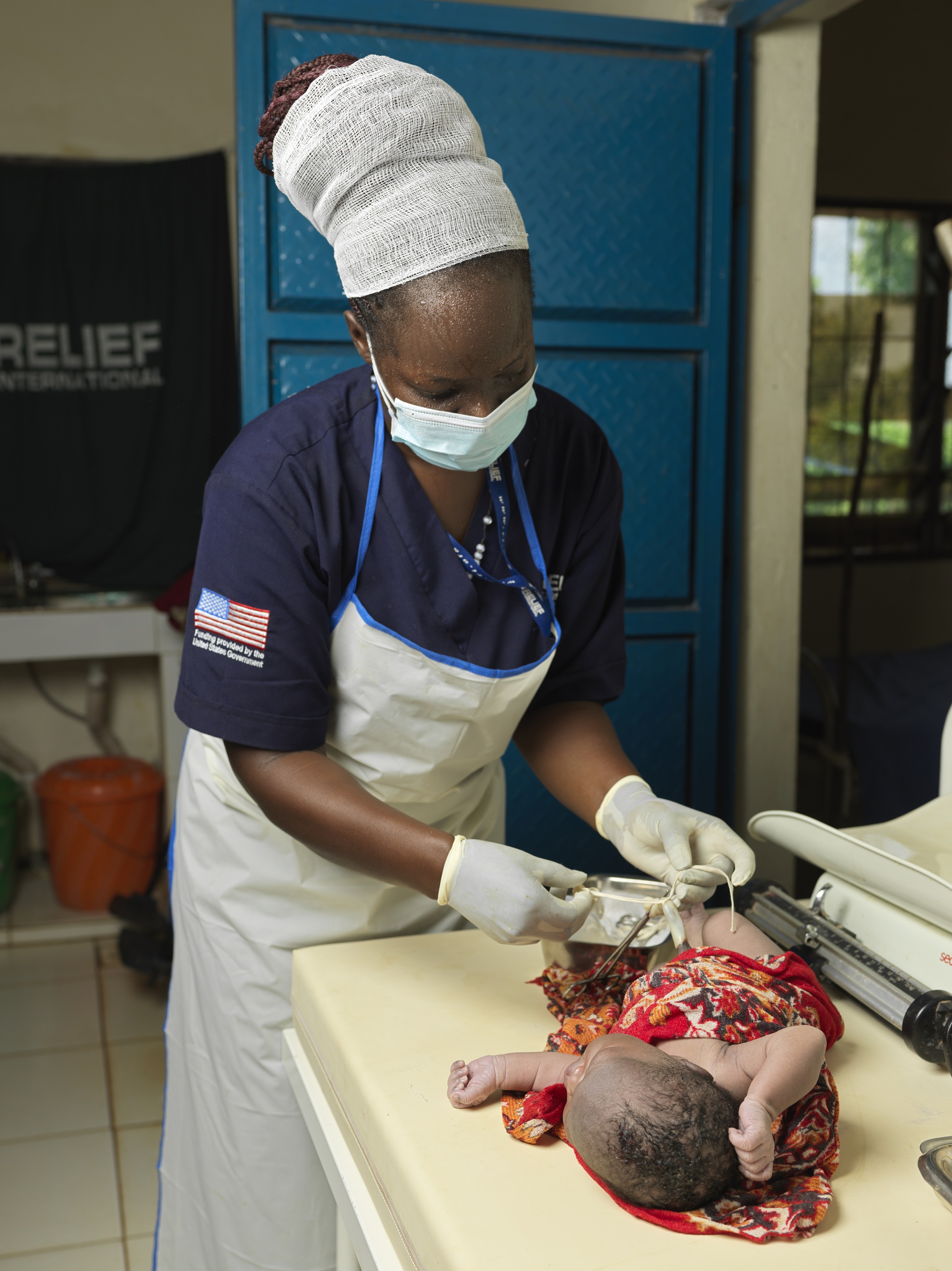South Sudan has the highest maternal mortality rate in the world. In a country where conflict, climate disasters and chronic underfunding have severely impacted the healthcare system, Relief International midwives have defied all expectations, making massive strides forward for the communities they serve. With a steadfast commitment to excellence, they have embarked on a mission to transform healthcare delivery and improve the lives of those most in need.
Key Statistics
- National Maternal Mortality Rate: South Sudan contends with one of the world’s highest maternal mortality rates, exceeding 1,223 deaths per 100,000 live births ( Source: UNICEF).
- Mortality Rates in Maban (October 2023): Under-5 mortality rate in Maban: 0.30 per 10,000 population per month compared (Source: DHIS 2, Ministry of Health, South Sudan) with a national average of 98.7 deaths per 1000 (source: UNICEF).
- Delivery Attendance: In October 2023, 96.6% of deliveries were attended by skilled health personnel (Source: DHIS 2, Ministry of Health, South Sudan) across Relief International’s ten primary healthcare facilities in Maban, compared to the national average of 40% (Source: UNICEF).
- Antenatal Care Visits: 82% of women attended at least four antenatal care visits during pregnancy, compared to the national figure of 31% (Source: UNICEF).
- Vaccination Rates (2021 SENS Report): Measles vaccination rates surpassed the global standard of >95%: 97.4% in Doro, 95.0% in Yusuf Batil, 98.6% in Gendrassa, and 100.0% in Kaya, the four refugee camps in Maban where Relief International is the sole provider of healthcare.

Ester, the Kaya Camp Midwife in Charge, with a mother and child she examined.
© RI
“During the flooding, one of our patients was cut off. Our staff and the whole community came together to help her reach us, tying a mattress to some jerry cans to help float her across the water,” says Ester, Relief International’s Midwife in Charge in the Kaya Camp.

Ester attending a newborn
© RI
“It is so important that the community cooperates with us. Like in times when there’s something bad, like flooding, they really do stand with us. During the time of flooding, it is with their help that we managed to take these mothers to this side,” says Ester.
In Maban, Upper Nile State, Relief International has been at the forefront of healthcare provision since 2009. As the sole provider of healthcare in the county, we operate primary healthcare facilities which serve both host communities and refugee populations, pioneering innovative approaches to address the unique challenges facing the region.
From January to December 2023, Relief International conducted a total of 514,840 curative consultations across all 11 health facilities in Maban.
Faced with limited resources and daunting obstacles, Relief International’s midwives have risen to the occasion, demonstrating unparalleled dedication and resilience in the face of adversity. Despite the odds, they have achieved remarkable outcomes, defying national trends and setting new benchmarks for success, going to extraordinary lengths to ensure timely referrals and birth attendance.
In Maban’s refugee camps, these interventions have brought about tangible change. Skilled Relief International midwives attend to almost every delivery, an impressive 96.6% of all births, ensuring safe and sanitary conditions even in the most challenging of circumstances. Antenatal care visits and vaccination rates have surged, providing critical protection against preventable diseases and saving countless lives in the process.
By prioritizing needs-based funding, ensuring adequate resourcing, and supporting comprehensive health interventions, Relief International has demonstrated the potential for transformative change even in the most resource-constrained settings.
In October 2023, 96.6% of deliveries were attended by skilled health personnel across Relief International’s ten primary healthcare facilities in Maban, compared to the national average of 40%.
Through sustained investments in primary healthcare and targeted funding from donors including World Bank, UNICEF, UNHCR and US Department of State PRM, Relief International has achieved notable advancements in health outcomes among refugee populations in Maban. Our efforts have led to significant improvements in maternal and child health indicators, with mortality rates falling within WHO thresholds—a testament to the transformative power of focused investments and dedicated healthcare professionals.
As South Sudan continues its journey towards recovery, Relief International’s model serves as a blueprint for success. But the work is far from over. Together, we can ensure that every mother receives the care she deserves, and every child has the chance to thrive. In the hands of dedicated healthcare professionals like Relief International’s midwives, the future of healthcare in South Sudan is brighter than ever before.
All health data calculations have been made using information available in the district health information system (DHIS2). Data is collected from Relief International health facility registers and entered into DHIS2 on a monthly basis. The indicator definition for skilled birth attendance uses the standard UNICEF definition found here.